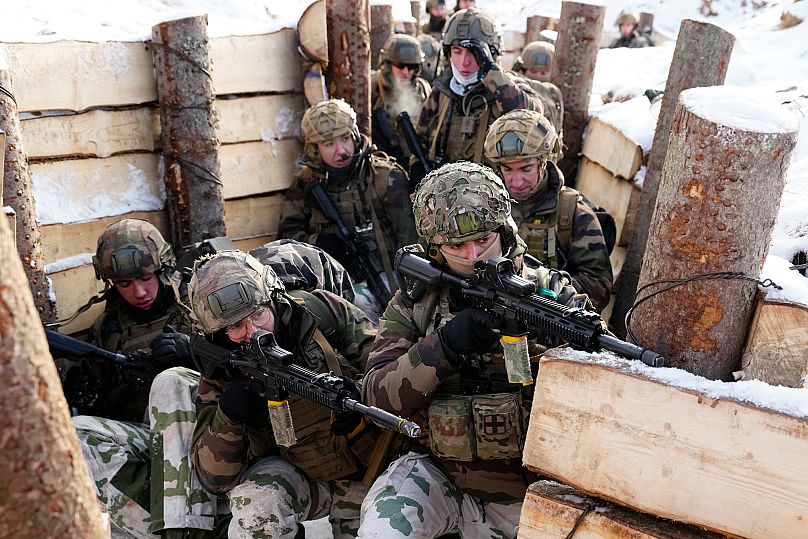The new NATO spending target has a 1.5% for non-military expenses. Its interpretation however is vague and could spark "opportunistic" divisions.
NATO leaders are preparing to agree on a historic military spending target as they convene in the Dutch city of The Hague for what's been deemed the alliance's most important gathering since its foundation.
Reaching a 5% GDP spending target would be a giant leap for most NATO members, as the vast majority currently invest less than 3% in defence.
The only exceptions are Poland (4.12%), Estonia (3.43%), the US (3.38%), Latvia (3.15%) and Greece (3.08%), according to Atlantic Council estimations.
What's in that 5% and what's the controversial bit?
The biggest chunk is a 3.5% GDP for "core defence spending", such as tanks, jets, drones, soldiers, tons of new artillery ammunition and - of course - troops.
But the remaining 1.5% leaves more questions open.
NATO called it "defence and security-related investments".
In other words, civilian and IT infrastructure designed to boost and support military operations, like bridges, roads and ports, storage, as well as cybersecurity and energy pipeline protection.
However, experts argue that this part of the budget is vague and open to national interpretations.
"With diverse traditions of civil preparedness across member states, this risks creative accounting and opportunistic prioritisation, while hampering cooperation", said Germany's Bertelsmann Stiftung think tank.
"If the 1.5% target fails to deliver measurable improvements in European resilience, it could backfire and strain transatlantic trust."
"NATO should establish a structured capability planning process mirroring its defence capability planning process, with clear alliance-wide objectives."
Is the spending target binding?
The devil is indeed in the details.
A NATO letter sent on Sunday to Spanish Prime Minister Pedro Sánchez seems to suggest that the 5% target might not be binding.
Spain, the letter says, "will have the flexibility to determine its own path for reaching the Capability Targets set by NATO", with more countries possibly advancing the exact requests.
Also, some allies could view it as a permission to allocate less than 5%, if they can prove they are nonetheless meeting the capability targets (whose list remains classified).
NATO's reassurance followed Spain's concerns about "unreasonable" spending targets.
"Allocating 5% of GDP to defence would slow down economic growth through an increase in debt", the PM has said.
The country currently spends around 1.28% of its GDP on defence, one of the lowest rates in the alliance.
The new NATO agreement will require countries to raise their spending to 5% of GDP by 2035, with a review of the allies' "spending trajectory" taking place midway in 2029.












